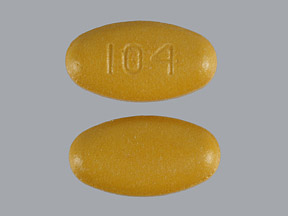
Sulfasalazine Coupons & Savings Card – Discount Prices from $16.80
Generic for: Azulfidine, Azulfidine en-tabs
My prescription
Edit
500MG, Sulfasalazine (120 Tablet Delayed Releases)
Select pharmacy

CVS
$43.12
COUPON PRICE
Walgreens
$16.80
COUPON PRICE
Walmart
$30.21
COUPON PRICE
Albertsons
$32.47
COUPON PRICESulfasalazine savings card
Show this card to your pharmacist
Walgreens
$16.80
BIN
ID
PCN
GRP
015995
LHKPU638859
GDC
DR33
Powered by
More prescriptions for ulcerative colitis
More prescriptions for ulcerative colitis
Price history for Azulfidine En-tabs (brand) & Sulfasalazine (generic)
120 Tablet Delayed Releases, 500MG
Average retail price for Azulfidine En-tabs
Average retail price for Sulfasalazine
Average SaveHealth price for Sulfasalazine
Our price history data is based on aggregated prescription data collected from participating pharmacies in America. Our prescription data updates daily to reflect the latest price changes. If you notice a missing data point, it means there wasn't sufficient data available to generate a monetary value for that date.
We analyzed Sulfasalazine prices for (500MG, 120 Tablet Delayed Releases) over the last 12 months. The average retail price was $62.57, while the average price using the SaveHealth discount card was $22.19. That's a savings of approximately 64.54% when using our Sulfasalazine coupon.
Compared to the generic version, Azulfidine En-tabs had an average price of $54.76 over the same time period. With the SaveHealth savings card, Sulfasalazine is 59.48% cheaper on average than Azulfidine En-tabs.
*Retail prices are based on pharmacy claims data, and may not be accurate when we don't have enough claims.
Sulfasalazine dosage forms
Dosage Quantity Price from Per unit 500MG 120 Tablet Delayed Releases $30.21 $0.25 500MG 100 Tablet Delayed Releases $25.60 $0.26 500MG 300 Tablet Delayed Releases $88.34 $0.29
| Dosage | Quantity | Price from | Per unit |
|---|---|---|---|
| 500MG | 120 Tablet Delayed Releases | $30.21 | $0.25 |
| 500MG | 100 Tablet Delayed Releases | $25.60 | $0.26 |
| 500MG | 300 Tablet Delayed Releases | $88.34 | $0.29 |
Sulfasalazine Warnings
This drug safety information highlights critical warnings and contraindications associated with the use of sulfasalazine (Azulfidine). It is essential to review these details thoroughly and discuss any concerns with your healthcare provider to ensure safe usage.
Liver, Kidney, and Blood Risks: Individuals using sulfasalazine (Azulfidine) may experience serious health issues affecting the liver, kidneys, or blood. These complications can be life-threatening in rare cases. If you have a history of liver damage, kidney problems, or blood disorders, inform your healthcare provider. Also, individuals with glucose-6 phosphate dehydrogenase deficiency (G6PD deficiency) should exercise caution.
Impact on Sperm Count: Sulfasalazine (Azulfidine) may reduce sperm count, potentially affecting fertility. This side effect is typically reversible upon discontinuation of the medication. Discuss family planning and alternative anti-inflammatory treatments with your provider if this is a concern.
Risk of Serious Infections: The use of sulfasalazine (Azulfidine) has been linked to severe infections such as pneumonia and bloodstream infections. Your healthcare provider will monitor for signs of infection during treatment. Notify them immediately if you experience symptoms like fever, chills, sweating, difficulty breathing, nausea, vomiting, or general weakness. Those with a history of recurrent infections, on immunosuppressants, or with weakened immune systems should be particularly cautious.
Severe Skin and Allergic Reactions: This medication may cause severe skin reactions, including rashes, which can sometimes require hospitalization. The risk is heightened for individuals allergic to sulfasalazine, sulfa drugs, or salicylates like aspirin. Seek urgent medical attention if you encounter symptoms such as rash, blistering, peeling skin, facial sores, swelling, or breathing difficulties.
Contraindications: Avoid using sulfasalazine (Azulfidine) if you have any of the following conditions, as they may lead to serious health complications:
- Blockage in the gut or bladder.
- Porphyria, a liver disorder causing porphyrin accumulation.
- Known allergies to sulfasalazine, sulfa drugs, or salicylates.
Consult your healthcare provider for further guidance if any contraindications apply to you.
Sulfasalazine Side Effects
Common side effects:
- nausea
- vomiting
- stomach upset
- loss of appetite
- headache
- dizziness
- unusual tiredness
- indigestion
- fever
- mild stomach pain
Less common but important to monitor:
- medication appearing undissolved in stool
- hearing changes
- mental or mood alterations
- signs of kidney issues
- low blood sugar symptoms
Serious side effects:
- severe allergic reactions
- blood disorders
- liver damage
- nerve or muscle problems
- severe headache
- skin rash or blisters
- mouth sores
- swelling
- severe dizziness
- trouble breathing
- signs of infection
- signs of liver problems
- unexplained physical changes such as new lumps or growths
Sulfasalazine Interactions
Interactions with high risk of serious adverse effects and should be avoided:
Interactions with moderate risk that may require dose adjustment, closer monitoring, or timing changes:
Interactions with low risk that usually do not require a change in therapy:
- Aminolevulinic Acid
- Cyclosporine
- Digoxin
- Eltrombopag
- Warfarin
